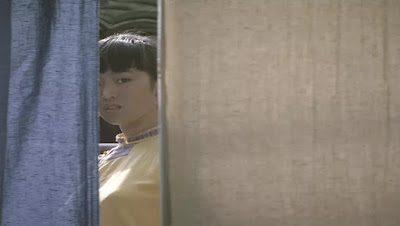On the date of Gloria Swanson's birth day and Billy Wilder's death, I watched his masterpiece SUNSET BOULEVARD.
As with other classic films it could have been so different - Wilder's first choice was Mae West and Marlon Brando!
Luckily they passed and Wilder cast the iconic trio of William Holden as penniless scriptwriter Joe Gillis, Gloria Swanson as the faded silent star Norma Desmond and Erich von Stroheim as her servant Max, who later reveals he was once Norma's director and first husband.
Wilder utilised both of their histories: when Joe and Norma watch one of her silent films it is 1929's QUEEN KELLY which starred - and was produced by - Swanson and directed by von Stroheim until she sacked him and stopped filming.
This scathing satire on life and death in Hollywood is ageless and Wilder's biting wit still cuts deep: by turns, it's funny, scary, perceptive, tragic and haunting.
Shelf or charity shop? Eternal shelf life. SUNSET BOULEVARD received 11 Academy Award nominations but only won three: screenplay (by Wilder, Charles Brackett and DM Marshman), art direction and Franz Waxman's lush score. Yes it was up against ALL ABOUT EVE but you suspect that made it easier to bypass such a bitter anti-Hollywood film. Wilder's direction wonderfully balances the operatic drama with cutting humour. The smiles mostly come from William Holden's sardonic Joe - an opportunity he grabbed with both hands, after being type-cast in nice-guy roles, But Wilder saw something deeper in him, his next film with Wilder, STALEG 17, won him his Best Actor Academy Award. Gloria Swanson's screen career had dwindled in the 1930s but, unlike Norma, she had kept busy on stage and radio. She totally inhabits Norma's deranged majesty however while shading it enough to bring moments like her delicious impersonation of Chaplin - who had directed her in 1915! Her legendary final scene, as insane Norma descends her staircase, thinking she is playing Salome for DeMille, is still unforgettable. Erich von Stroheim underplays rather than chewing the scenery, while Nancy Olson is delightful as Betty, the young writer who offers Joe a chance for escape. Wilder cleverly cast former silent stars as Norma's bridge-playing friends: Buster Keaton is the only one known to viewers today, the others are Anna Q Nilsson - the first Swedish Hollywood star, before Garbo and Bergman - and HB Warner who played Jesus in KING OF KINGS, directed in 1927 by Cecil B DeMille who himself has a sizeable cameo as himself; also seen is real-life gossip columnist Hedda Hopper, phoning in her breaking news from Norma's bedroom at the film's climax.



















































